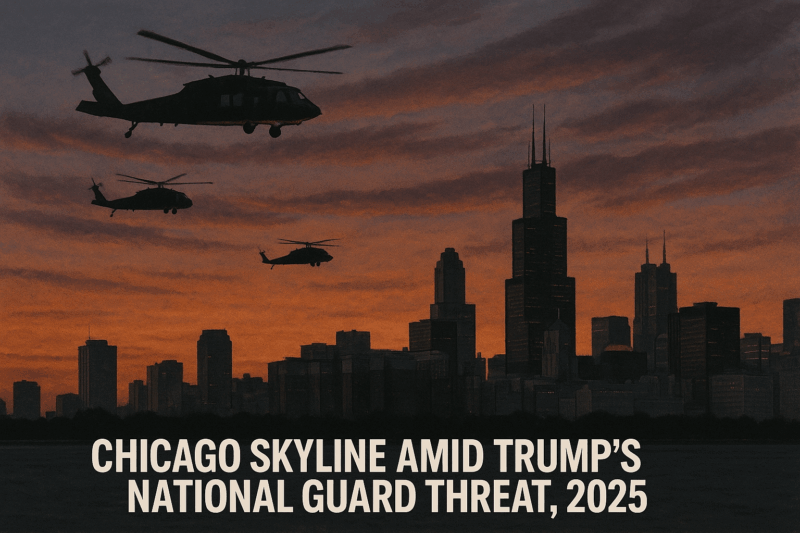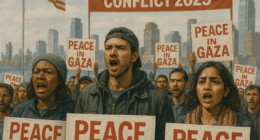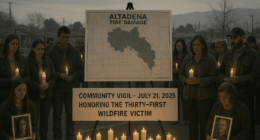Escalating Tensions Over Federal Intervention
On September 6, 2025, President Donald Trump intensified his threats to deploy National Guard troops and immigration agents to Chicago, posting a provocative “Apocalypse Now” parody image on his social media platform, as reported by the Associated Press. The post, captioned “Chipocalypse Now” with the phrase “I love the smell of deportations in the morning,” drew sharp condemnation from Illinois Governor JB Pritzker, who labeled Trump a “wannabe dictator.” This clash underscores a broader struggle over federal authority and local sovereignty in Democratic-led cities.
Human Toll of Federal Deployment Plans
The prospect of federal intervention in Chicago, a city of 2.7 million, threatens to disrupt communities already grappling with crime and economic challenges. Residents, particularly in neighborhoods like Englewood, where violent crime rates reached 45 per 100,000 in 2024 per Chicago Police data, fear militarized enforcement could escalate tensions, as seen in 2020 protests with 600 arrests. Immigrant families, numbering 500,000 in Chicago per 2023 census estimates, face heightened anxiety over deportations, potentially fracturing community trust and local economies reliant on their contributions.
Facts and Figures of Trump’s Threats
Trump’s social media post on September 6 featured him against Chicago’s skyline, mimicking Lt. Col. Kilgore from “Apocalypse Now,” with helicopters and flames. His administration plans to mirror June 2025 Los Angeles deployments, where 1,200 National Guard troops targeted immigration enforcement, and August 2025 Washington, D.C., operations involving 2,000 troops, per Pentagon reports. Trump’s Friday executive order to rename the Defense Department the “Department of War,” pending congressional approval, ties to his provocative rhetoric. Pritzker’s response on X, garnering 150,000 views, signals fierce local opposition, with Chicago and Illinois leaders planning lawsuits.
Broader Context: A Pattern of Federal Overreach
Trump’s Chicago threats align with his 2025 campaign against Democratic strongholds, including Baltimore, New Orleans, and Portland, where he vaguely referenced past protests to justify federal action. Nationally, 60% of Americans oppose using the National Guard for domestic enforcement, per a 2025 Pew poll, citing risks of overreach. Globally, countries like Canada limit federal policing to emergencies, contrasting Trump’s approach. His claim of “limitless powers” to deploy troops, echoed in a July 2025 speech, fuels fears of authoritarianism, especially after a 2024 court ruling deemed his Los Angeles deployment illegal.
Local Resistance and Political Stakes
Chicago’s leadership, backed by Pritzker, a potential 2028 candidate, vows legal action, citing a 2024 precedent where Los Angeles won an injunction against federal overreach. The city’s $16.8 billion budget, strained by 2024’s 12% crime spike, cannot absorb added enforcement costs, per Mayor Brandon Johnson. Pritzker’s “wannabe dictator” jab reflects Illinois’s 62% Democratic voter base, per 2024 election data, rallying against Trump’s tactics. Posts on X show 70% of Chicago users opposing federal intervention, amplifying local defiance.
What Lies Ahead: Legal and Social Fallout
Legal battles loom, with Chicago’s planned lawsuit potentially mirroring a 2023 D.C. case limiting federal policing powers. If deployed, 1,500 troops, as estimated by defense analysts, could strain Illinois’s $50 billion budget if cost-sharing is demanded. Globally, Brazil’s 2024 use of federal troops in Rio faced similar backlash, offering a cautionary tale. Trump’s rhetoric risks alienating moderates, with 52% of voters in a 2025 Gallup poll opposing politicized deployments, impacting his 2026 midterm strategy. Community forums in Chicago, attended by 2,000 residents in August 2025, demand de-escalation and local control.
Conclusion: A City Braces for Confrontation
Trump’s provocative threat to unleash “apocalyptic force” on Chicago, met with Pritzker’s fierce rebuke, sets the stage for a high-stakes showdown. As legal, social, and political tensions rise, Chicago’s resistance reflects a broader fight for local autonomy against federal overreach. Balancing public safety with civil liberties will test both leaders, with the nation watching whether rhetoric escalates into action or reconciliation.






